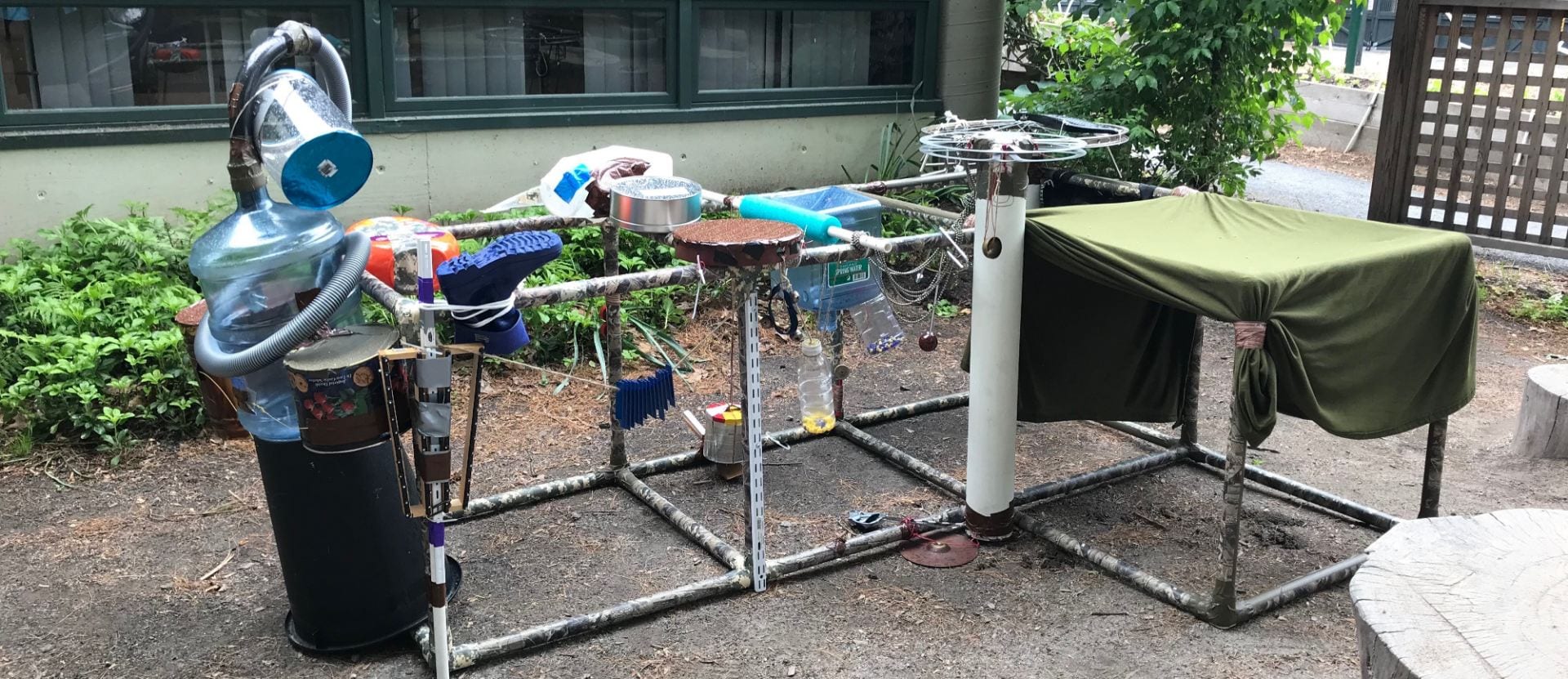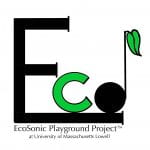

The EcoSonic Playground Project™ (ESPP) aims to address three pressing issues faced by the global learning community; access to music and arts education, integration of STEM, and sustainability. The ESPP works with children of all ages to design, build, and play large-scale, multi-player musical instrument structures made from recycled materials.
The global learning community faces several pressing issues.
The EcoSonic (Ecology/Sound) Playground Project™ (ESPP) aims to address three of them:
The ESPP focuses on working with children of all ages to design, build, and play large-scale, multi-player musical instrument structures made from reusable materials.
It incorporates musical exploration, engineering, science, math, design thinking, and open creativity into an immersion learning curriculum.
Focused, differentiated, and developmentally appropriate teaching practice inform all aspects of this project.
What makes the EcoSonic Playground Project™ unique is its adaptability.
We design each ESPP program to fit your needs.
We will come to you – either literally (if you happen to be in the Boston or surrounding areas) or figuratively (we will send EcoSonic Playground Project™ Kits to those of you who are interested but too far for us to reach you).
The ESPP is fully grant supported. We may ask your school or organization to contribute to the cost of materials based on a sliding scale: Our goal is to provide materials to as many learning communities as possible.
However, if your school or community organization qualifies as low socioeconomic status, we will provide an ESPP kit for free.
Kit materials include:
EcoSonic Playground Project™ building materials
Curriculum guides for sustainable activities, designing, and building the instruments and scaffolding
A comprehensive music curriculum
Students design and build their ESPP and then play it in class.
Students play their ESPP in concert.
Dr. Elissa Johnson-Green
ESPP Project Lead and Lead Investigator
Assistant Professor of Music and Music Education
University of Massachusetts Lowell
Dr. Rocio Rosales
Associate Professor of Psychology
University of Massachusetts Lowell
Collaborator: Present
Assistant Teaching Professor of Music
University of Massachusetts Lowell
Co-Lead: 2015-2018
Major partner: 2019-2020
Anthony Beatrice
Executive Director for the Arts
Visual and Performing Arts Department
ASSET | Boston Public Schools
Collaborator: 2018
Dr. Michael Flannery
Head of Department
Department of Arts, Mathematics, PE and
Early Childhood
Marino Institute of Education
University of Dublin, Trinity College
Collaborator: 2016-2018
